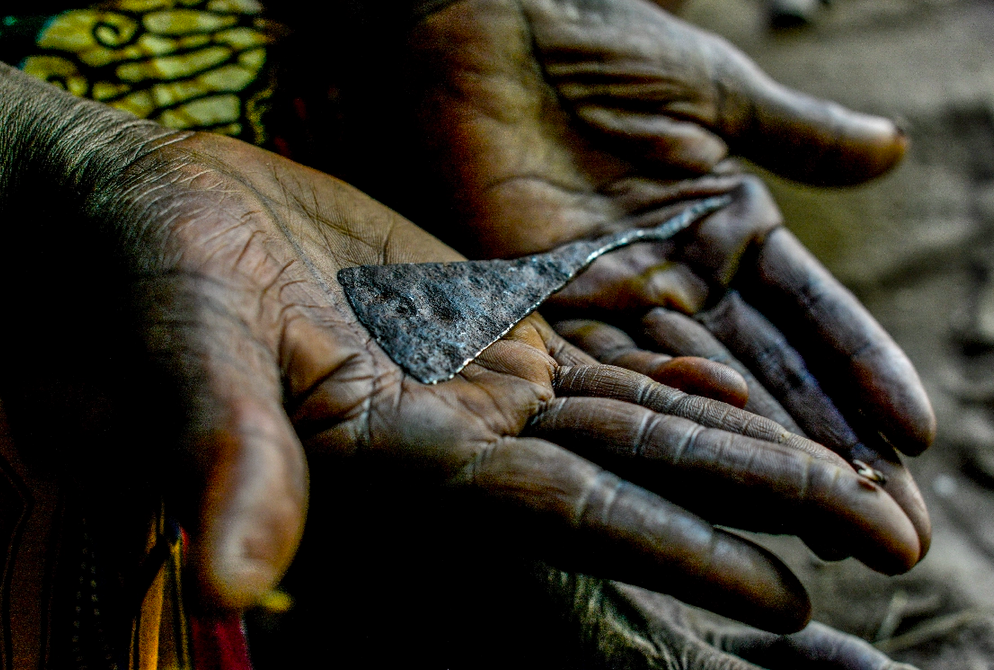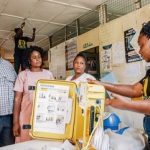In 1976, Ann Sitonik, a resident of Bomet County in Kenya, was forcefully circumcised by her grandmother who was a traditional circumciser and had sworn to circumcise all girls in her family. Although Ann healed with no major complications, she still remembers the pain she felt and regrets undergoing the cut.
Like Ann, over 200 million girls worldwide are at risk of undergoing this harmful practice every year, many of whom are under 15 years. In Kenya, one in five women and girls has been subjected to FGM while for some communities, this rises to as high as 94 per cent, as is the case in Bomet County. According to Lily Bosire, the Anti-FGM representative in Bomet, the County records the highest number of FGM cases in Kenya having an average of 62% when compared to the country’s 21% rate meaning, 6 in every 10 women and girls have undergone the cut.
Sadly, 3 out of every 100 women and girls that undergo the cut lose their lives because of excess blood loss. Aside from this, Lily adds that circumcised girls and women get complications during childbirth that can lead to fistula while others become disabled because of nerve interference by the traditional circumcisers who have no medical training. In addition, because of the trauma, these women are affected psychologically and don’t receive any counselling.
In 2019, former President Uhuru Kenyatta made a bold pledge to eliminate FGM in Kenya by 2022 however, the COVID-19 lockdown and the uncertainty that came with it brought a lot of challenges and drawbacks to the fight against FGM. According to Hon. Jebii Kilimo from the state department for gender, communities and some religious sects saw the COVID-19 lockdown period as a perfect opportunity to perform these erroneous acts because of the controlled movement. To further this, girls and women who went through the cut were taken to other counties or neighbouring countries giving rise to cross-border FGM.
Additionally, FGM instances increased during Kenya’s election campaign in 2021-2022 because political candidates were intimidated into abiding by tradition in order to win support from their communities, particularly from the perpetrators who are powerful figures in those communities.
To minimise and ultimately eradicate this vice, World Vision works with not only the government but communities and individuals as well. Sarah Kalya who is a beneficiary of world vision and a reformed traditional FGM cutter recounts past events that eventually lead her to attend a meeting by world vision, which culminated in her vowing to stop the practice.
Sarah was a matron for these girls and women in the South Rift and during one of the last cutting ceremonies, she had to hide the girls near the Tanzanian border while others were hidden in neighbours’ homes following a crackdown carried out by police in her village. After the incident, the girls and women were taken back to their homes with the assistance of ‘bodaboda’ riders, having not completed the ceremony.
According to Sarah, FGM ceremonies involved a cutting ceremony followed by two or more weeks of training for the girls and women on adulthood and expectations of a woman after circumcision. Over the past years, many women who participated in these ceremonies have had an altercation with the police and as a result these women who were traditionally called ‘Kworgotum’ in Kalenjin, decided to leave the practice for other forms of livelihood.
Following the incident, Sarah attended a meeting by world vision for community elders in her community about the effects and consequences of performing FGM. Having been touched by the conversation that transpired, she decided to approach her sister-in-law, Jane, who was also an FGM cutter and matron for the girls and women. Jane who was with Sarah at the time of the interview said, “I was equally involved in the circumcision of both boys and girls, I specifically loved FGM because of the higher amount of money it fetched. I also learnt about pain numbing procedures that I used purposely on my cutting ceremonies and although some girls got complications during the ceremonies, many loved my services because of the numbing procedures that set me apart from the rest of the cutters.”
Today, World Vision is working with such women in training girls and women for adulthood without the cutting practice in what they term a new circumcision practice. These women who are actively involved in this new practice say that many women who perform FGM do it because of a lack of means for their livelihood and they commend the county government of Bomet and other players involved in the fight against FGM, for the efforts put in place to provide them with business building opportunities.
The presence of a structured government response puts the country ahead of its neighbours in the fight against FGM by giving the mandate to organisations like the Anti-FGM board to lead the fight against FGM and also partners with private companies and NGOs like world vision. However, since FGM is commonly associated with poverty, deprivations and inequalities, women also need empowerment in their rights and available business opportunities.




